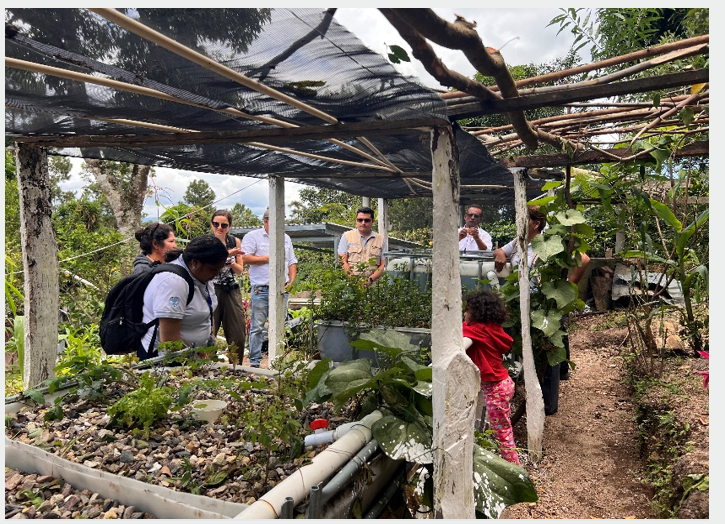Introducing innovative aquaponic systems to farmers in Honduras
The Empowerment of Women for Climate Action in Honduras project (FAO, over $6.6 million, 2018-2024) is working to improve the quality of life of rural and Indigenous women and youth whose livelihoods depend on forest resources. The project has helped 281 people (including 164 women) in 12 Western Honduras municipalities to access climate-smart agroforestry technologies.
Doña Sonia is one of the women who benefited from this project. She has a family garden plot that has integrated an aquaponic system, which is an integrated agriculture approach that incorporates both fish and the organic production of vegetables in order to manage water more efficiently and improve the resilience of gardens. The aquaponic system uses fish water as fertilizer for the plants, while the plants clean the water for the fish.
“I was trained by the project’s technicians in the management and use of aquaponics. This was a pilot project and from here others have emerged from various communities,” says Sonia.
In her small aquaponic space, Sonia harvests yerba buena, cilantro, chard, cucumbers, endives and cherry tomatoes. She now sells her organic produce at the market in Gracias, Lempira. Sonia says this farming method reduces the time women like her spend growing the produce.
"We don’t have to be constantly cleaning and spraying fungicides.”
In fact, by implementing better farming methods, the project has helped 400 women like Sonia to save 400 hours of work annually per household.

Credits: © FAO Honduras office, Honduras, 2022
- Date modified: